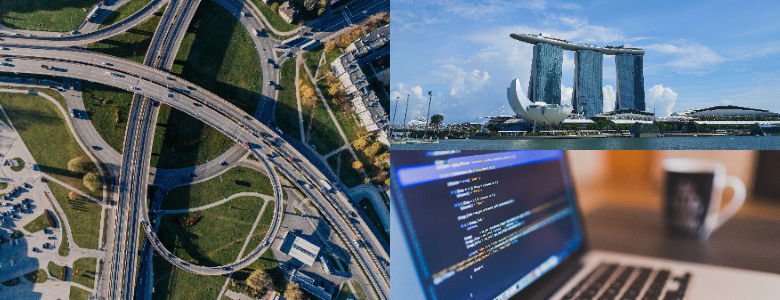Smart Nation Snippets: News highlights from January 2018

In this monthly series, TechNews seeks out the most important and interesting Smart Nation stories to bring to you, the reader. This January, learn about some of the ingredients that go into the making of a Smart Nation — data, hardware and talent.
The new gold in this digital age is data — collecting and harnessing it for actionable insights is key to the operation of a Smart Nation. For example, transportation data can go a long way towards planning urban mobility, while environmental data can help ensure that natural resources are not compromised by urban development or climate change. All these require the deployment of sensor networks, which must be developed in tandem with data management systems.
But data is not the only driving force behind a Smart Nation. People and infrastructure that foster innovation are also essential, and cities around the world are experimenting with various means to create and support a thriving ecosystem for creatives, inventors and entrepreneurs. To this end, the timeliness of policies and initiatives matters as well. Read about these issues and more in this month’s Smart Nation Snippets.
Robot swans to help monitor water quality in Singapore’s reservoirs
While sensors are often thought of as purely utilitarian devices, the Public Utilities Board of Singapore has put a twist on its sensors for monitoring the quality of water in reservoirs. The Smart Water Assessment Network (SWAN), jointly developed with the National University of Singapore’s Environmental Research Institute and the Tropical Marine Science Institute, is not just a SWAN in name, but also takes the form of a white swan patrolling the waterways.
Who Owns Urban Mobility Data?
The rapid proliferation of privately owned mobility-on-demand and ride-sharing services means that private companies have accumulated a substantial repository of urban mobility data. Such information can be critical for governments to plan transportation networks, but not all enterprises willingly share their data. In addition to the question of data ownership, this article considers how the free exchange of data between public and private entities can be encouraged.
To get the most out of self-driving cars, tap the brakes on their rollout: Opinion
Too much too soon is a mistake that governments don’t want to make in the implementation of any technology, argues this opinion piece. This is especially true for autonomous vehicle technology, where lives are at stake should a glitch occur. Instead of putting the pedal to the metal, governments need to gradually build up public confidence in the technology, says the author.
The Smart Nation movement needs smart people
With all the buzz over the technology that goes into the making of a Smart Nation, it is easy to forget that people are the creators and beneficiaries of change. At the end of the day, the aim of Smart Nation initiatives is to enhance the liveability of Singapore, secure the livelihood of its citizens and enable people to live together harmoniously—the three ‘3Ls’, according to speakers at a panel discussion organised by Singapore’s National Youth Council.
These are the world’s most innovative cities, and here’s why
Singapore is not alone in the pursuit of Smart Nation or smart city ambitions, and while every country grapples with its own challenges and leverages its own strengths, important lessons can be learnt from success stories abroad. In this report, countries are grouped according to shared characteristics, such as their ability to attract and retain talent, their business environment and their strength in research, among others. Singapore is counted among the ‘Big Seven’ alongside London, New York, Paris, Hong Kong, Tokyo and Seoul as one of the world’s most innovative cities.
https://www.tech.gov.sg/media/technews/smart-nation-snippets-news-highlights-from-january-2018
